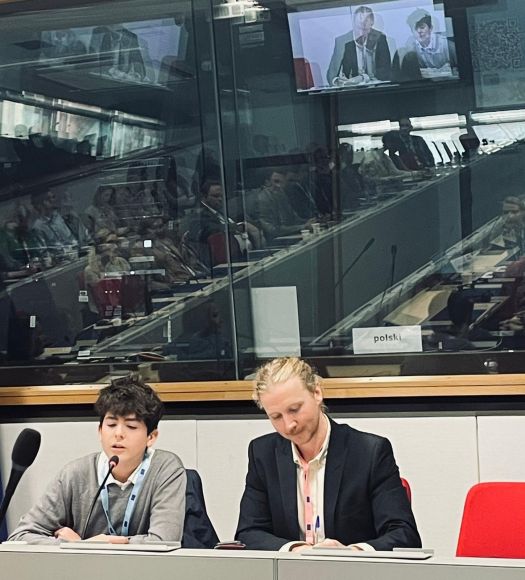
Putting the younger generation at the heart of Europe, valuing their voices, including them in European cohesion policies and giving them the opportunity to make a real change in society. These are some of the goals set by Eurochild, a transnational program that aims to create a bridge between politics and youth. The purpose is to involve new generations in democratic decision-making processes and to recognize their contributions at a municipal level.
The topic of youth democratic participation was addressed at the discussion held last Tuesday, October 8th, at the Albert Borschette Conference Center.
The meeting aimed to highlight the importance of young people and to recognize them as pro-active actors on the political stage, encouraging them to engage with innovative perspectives and to share their ideas.
According to insights from the conference, young people are a vital resource for Europe, and beyond, but they are underestimated. Often, this is perceived as a lack of interest in political debate on their part. But this is not the case and the data is clear: according to the Eurobarometer Flash 545 survey ‘Youth and Democracy’ - conducted by the European Commission during the last elections in June 2024.
The survey found that 49% of european youth said they contributed to change the society through online petitions, manifestations and letters to politicians. Moreover, in nine member states, about 50% of respondents confirmed they had taken initiatives in political decision-making processes.
The research has shown a generation that believes in the European project and whose ideals are reflected in progress and democratic participation.
Among the topics young people are most active on are human rights (34%), climate change (33%), mental health (29%), and equal rights in gender, sexuality and origin (29%). The survey, conducted in April 2024, targeted a representative sample of 26 189 young people aged between 15 and 30, across the 27 EU member states.
“Often, as a young politician, you are seen as either too radical or naïve”, Julia Eikeland, a 24-year-old youth politician said. “At first, they congratulate you, but when it comes to taking concrete action, you're never given the power to do so,” she said.
Other important voices were also present: Ciaran O'Donnell, project manager at Eurochild, Fanni Mátyó, political expert and Lukáš Hrošovský from the Brussels Representation Office of the Trnava Self-Governing Region.
The four speakers noted a clear shift in youth activism: as shown by Eurochild's results, a European scenario is emerging where young people are increasingly aware of political challenges. From their point of view, the European perspective remains central to young people and once again, their importance to the future of Europe and democracy is clear.
“We are striving for a society where all children and young people grow up confident and respected as individuals in their own right - continued Julia Eikeland -. It is important to treat young people as political actors capable of carrying out their roles, because their right to participate is crucial,” Eikeland said.
By Nada El Khattab



